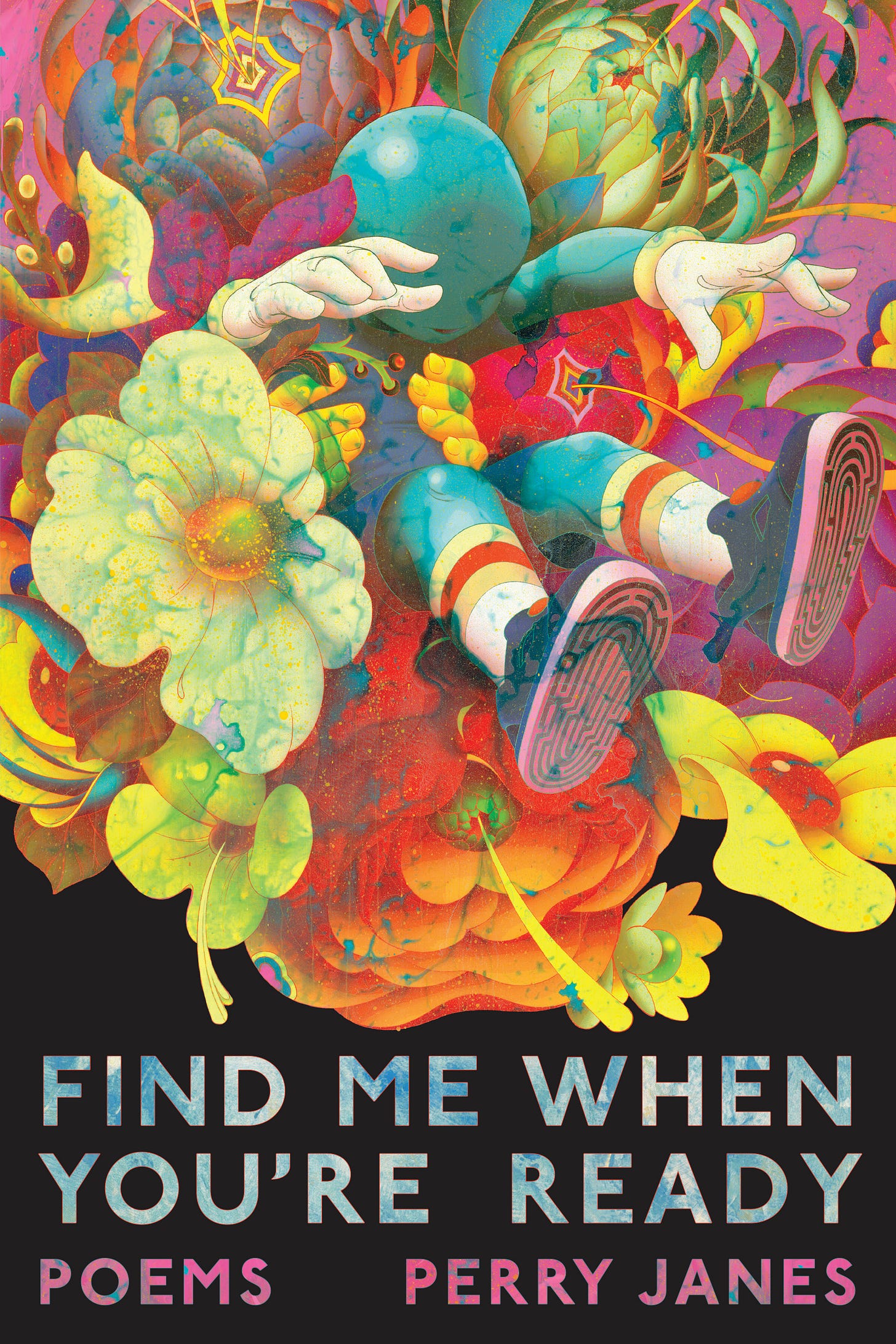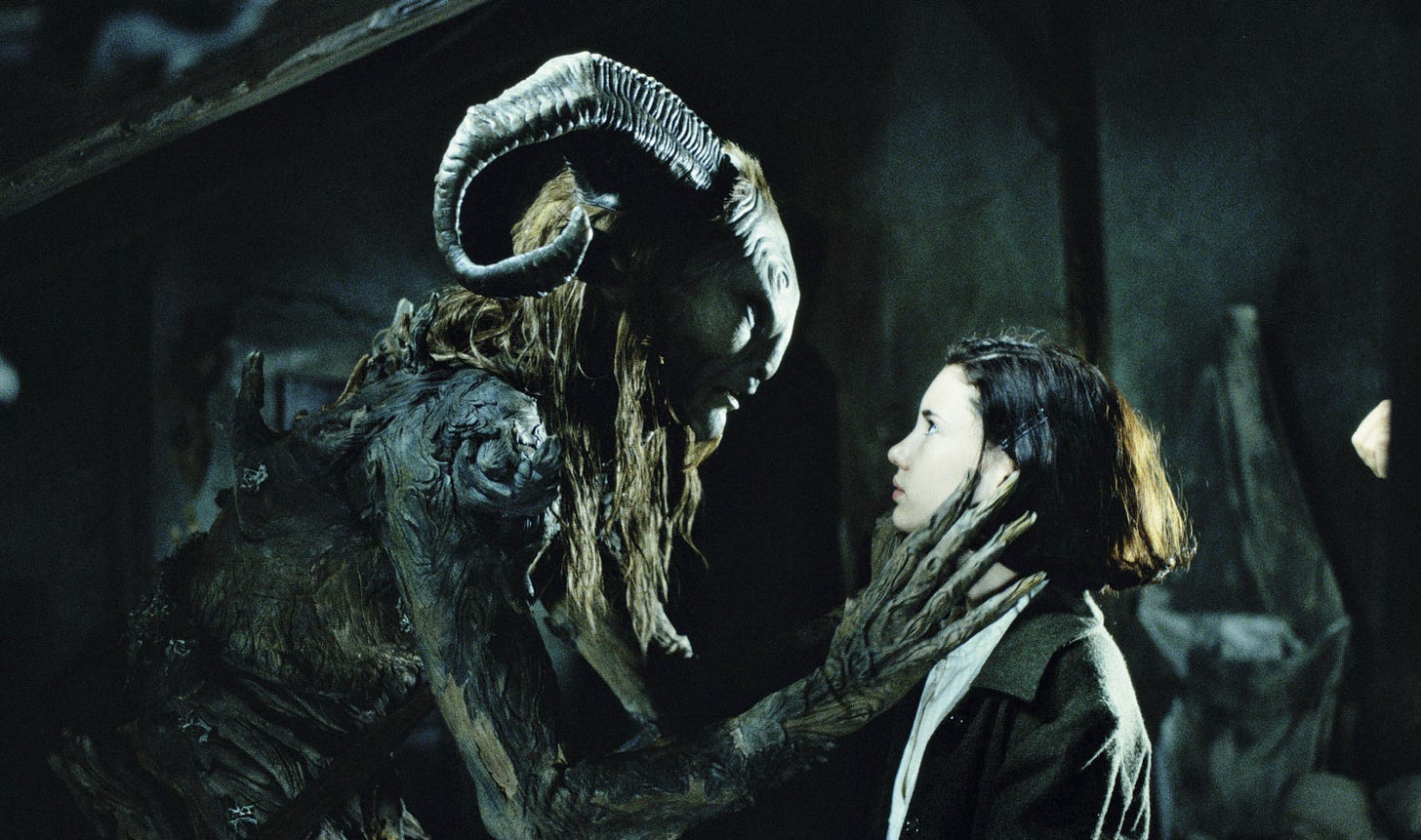Read to Know Basis: Perry Janes
The author of Find Me When You're Ready intertwines life's truths with poetic fictions.
Read to Know Basis is a weekly interview series with authors. It features debut authors and established writers talking about reading, writing, and of course snacks. This series is free to all. If you like what you read, consider subscribing to support the work of Unstacked, and of course, go out and buy the book!
Perry Janes is the author of Find Me When You're Ready (Northwestern University Press/Curbstone Books). A recipient of the Pushcart Prize, his work has appeared in POETRY, Poem-a-Day, Electric Literature, The Adroit Journal, Zyzzyva, and others. He holds a BA from the University of Michigan, where he was a five-time recipient of the Hopwood Award, and an MFA in Poetry from Warren Wilson College. Originally from metro Detroit, he lives in Los Angeles, where he works as a screenwriter.
What are five words to describe your book?
Lonely, Playful, Meta, Imaginative, Hopeful.
What is the strangest thing you googled while researching/writing this book?
Fittingly, there’s a poem all about search history in the collection, titled “Google Knows Literally Everything About You—Here’s How to Delete that Data.” (As it turns out, Google isn’t very helpful in making itself obsolete.) Missing from that poem are, admittedly, my weirdest searches. In particular, while fact-checking another poem in the book, I was led to research the use of human cremains as garden fertilizer.
What are three books that are in conversation with your book?
The Room Where I Was Born by Brian Teare
In the Dream House by Carmen Maria Machado
Though it isn’t a book, I have to name the film Pan's Labyrinth by Guillermo del Toro, whose thinking around monstrosity and escapism powerfully influenced me.
Describe your ideal reader?
Anyone interested in hybrid forms of storytelling. Anyone suspicious of their own creation myths, the stories they’ve told themselves to get by, that they’ve outgrown but not yet left behind. Anyone who believes that joy, delight, love, adventure, and nostalgia can coexist in the same story (sometimes in the same moment) with harm, confusion, sorrow, and anger without negating one another. Anyone who’s moved away from home to chase their ambitions, only to find that journey less straightforward than they imagined. Fans of magical realism. Lovers of love poems. Em-dash enthusiasts.
How do you structure and/or plan out your books? Do you outline? Do you fly by the seat of your pants?
As a screenwriter and fiction writer, I tend to outline my stories, but that’s not the case with poems—even when the poems tell a story, as they do here. Although I wrote from the perspective of a single narrator, each poem was an act of discovery. Later, once the poems were finished, it took some time to arrive at the book’s 5 act structure, realizing I had written a coming-of-age tale with a clear movement from childhood to adulthood.
What is a piece of writing advice that you’ve received that you think is really bad? What is a piece of writing advice that you think is really good?
I tend to think any advice that’s overly dogmatic isn’t helpful, so the best advice I’ve gotten is simply to invest my faith in the process, in the joy of writing itself. That, more than anything, keeps me coming back to my desk. The worst advice I’ve gotten was to write with a cocktail (or bottle of wine) to avoid self-consciousness. One drink and I’m the worst writer you’ve ever read: short attention span, long-winded, thinks he’s charming.
What are you reading right now? And what book are you desperate to read next?
I just finished What Is Otherwise Infinite by Bianca Stone and picked up Razzle Dazzle by Major Jackson. As a pathological re-reader, I’m also working back through The Rabbit Hutch by Tess Gunty and Everything Comes Next by Naomi Shihab Nye.
If there’s one book I can’t wait to get my hands on, it would be Paige Lewis’s recently announced novel Canon.
What book are you an evangelist for?
Constellation Route by Matthew Olzmann. Not only is this one of my favorite poetry collections—it’s a book I truly believe has something for everyone. The poems are often laugh-out-loud funny. They invite the reader in with humor or absurdity but are so tightly crafted they always swerve at the most unexpected moment toward a hidden emotional center. They’re little surprise machines, each one. I can’t recommend it enough.
What's a book that has changed the way you think about life/the world?
Upstream by Dan Heath literally changed how I think about the world and its invisible systems. But that’s a very data-driven work of non-fiction. Artistically, The Golden Compass by Phillip Pullman changed my understanding of what genre can do. It uses the pleasures of fantasy to bypass my readerly defenses and surprise me with stark social commentary, alongside the most moving allegory for childhood abuse I’ve ever encountered. It speaks back to literary classics and theological teaching without feeling esoteric or insular. It moves me to think deeply with ease and enjoyment.
Who is your literary crush?
I don’t know that “crush” is the right word, but I’ll say, Lynda Hull, whose Collected Poems never leaves my desk. Her language was as seductive as the nightscapes and wanderers featured in her poems.
If you could not be a writer what would you do?
I would probably say, nurse or healthcare provider. For reasons I don’t fully understand, hospitals calm me, and I think I would find that work rewarding.
You’re invited to a literary potluck, what are you bringing?
Fixings for a cocktail I then get stuck in the kitchen mixing for the duration of the evening. (No complaints. In my experience, the kitchen is where the best conversations happen anyway.)
Connect with Perry: Instagram | Website






